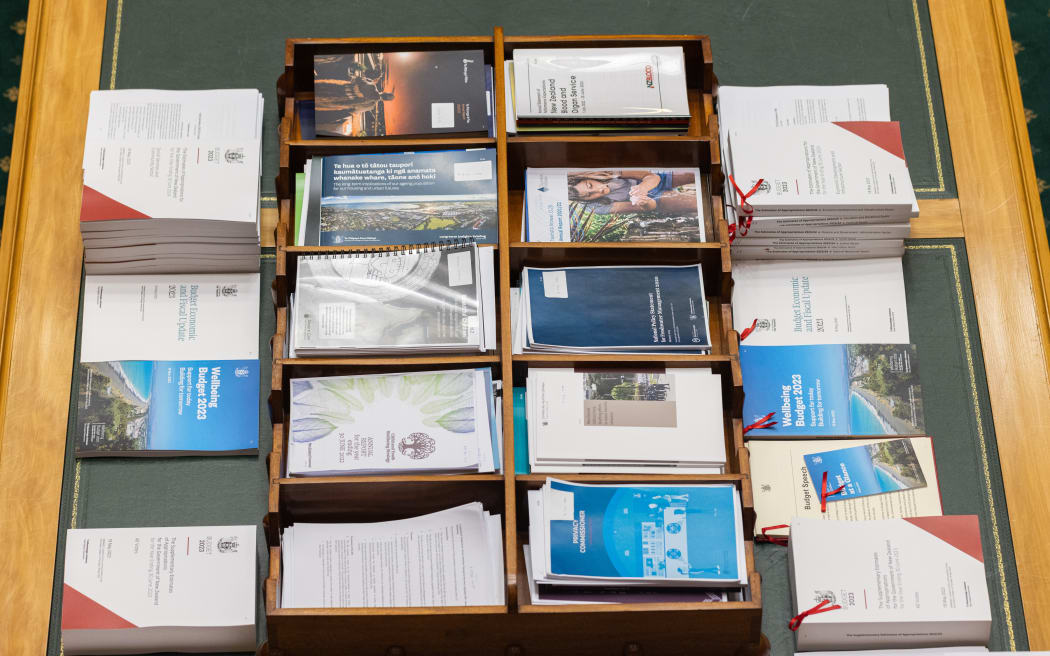It’s the norm following the delivery of the Budget for the House to go into urgency, a chance for the government to move through legislation directly related to the Budget and some other stuff too.
This means a longer than usual week at parliament - that’s why MPs have been sitting today on a Friday. But mercifully for them, or us, this week’s legislative load under urgency following the 2023 Budget has been quite light.

Copies of the Government's budget summaries and speech on the Table in Parliament's Debating Chamber. Photo: VNP / Phil Smith
The motion to go into urgency routinely immediately follows the debate on the 2023 Budget. At that point, for the main part, the noise and political reckons over the budget's character storm off into the public discourse while scatterings of backbenchers are left to sort through government business.
So what went down?
Five bills were attended to. Four of them were freshly introduced, including two that passed through all stages. They both relate to the supply of energy and the changes being made are narrow and specific.
The Energy Resources Levy Amendment Bill aims to ensure the Crown receives a fair financial return for its fossil gas. According to the Government, it must be passed quickly so as to avoid confusion over the current interpretation of the law and losses of levy revenue to the Crown and the public.
Urgency is being used to ensure that levy funding is available to maintain "fuel resilience" for the country, in the form of the Energy (Fuels, Levies, and References) Amendment Bill, as funding certainty is required to finalise the arrangements for the reserve diesel stock arrangement by the end of 2023.
There were also three first readings done in order for each to be referred to select committee without delay. The first of these was the Taxation (Annual Rates for 2023-24, Multinational Tax and Remedial Matters) Bill, which has to be passed by 31 March each year. The bill also includes changes that are part of the Budget package.
Speaking on the bill, the Revenue Minister David Parker said its main features were designed to improve the fairness of the tax system, including aligning the trustee tax rate with the top personal tax rate at 39%, and committing New Zealand to a global initiative to ensure multi-nationals pay at least 15% tax.
The Tax Principles Reporting Bill also had a First reading, legislation that proposes a statutory framework for the reporting of tax information.
And finishing up the week, the Land Transport (Road Safety) Amendment Bill, which the government says strengthens powers to address unsafe behaviour on New Zealand's roads, had a first reading and referral to a select committee.

